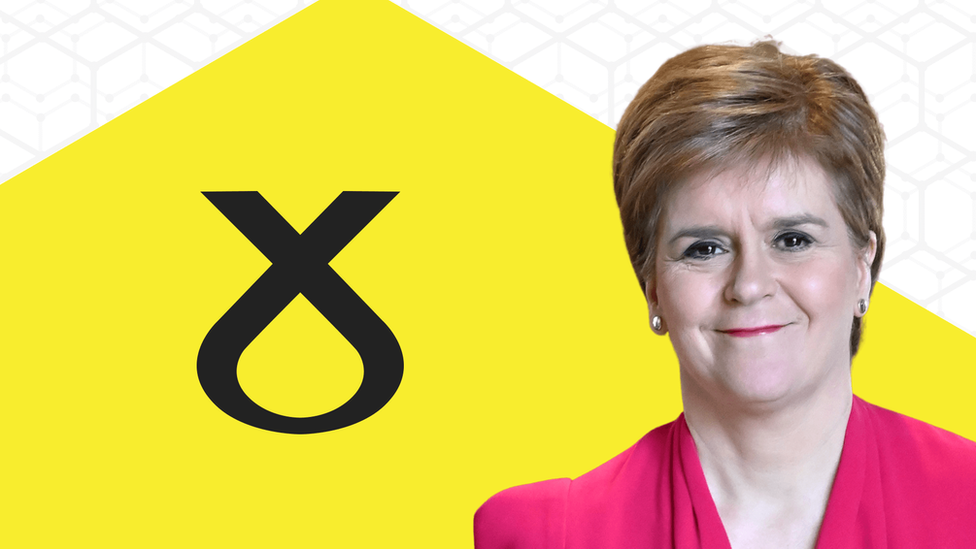Scottish election 2021: A simple guide to the Scottish Liberal Democrats
- Published
The Scottish Liberal Democrats are the joint fourth largest party in the Scottish Parliament, with five MSPs out of 129 seats.
Often called the Lib Dems, they have traditionally tried to occupy the centre ground in Scottish politics.

Scottish Liberal Democrats leader Willie Rennie
Who is the leader?
Willie Rennie. He has served as an MSP for North East Fife since 2016 and previously as MSP for Mid Scotland Fife from 2011 to 2016. Mr Rennie was also elected as an MP for Dunfermline and West Fife from 2006 to 2010. When in Parliament he was a member of the House of Commons Defence Select Committee, Shadow Defence Minister and Chairman of the Lib Dems' Campaigns and Communications Committee.

SCOTLAND ALERTS: Get extra updates on BBC election coverage

Before his election, Mr Rennie worked for a small Scottish communications firm, helping advise the Royal Society of Chemistry and Asthma UK. He was Depute President of the Student Union while a student and went on to work for the Lib Dems in Cornwall.
He is a member of Dunfermline's Carnegie Harriers and a keen long-distance runner.
What do they need to do to win the election?
The Scottish Liberal Democrats need 60 more MSPs elected to form a government on their own. Realistically, they will be looking to increase their number of MSPs and be in a position to influence policy.
Key policies
Put recovery first from the pandemic
An Education Bounce Back plan
Train more mental health specialists for community centres, hospitals, workplaces and schools
Tackle the climate emergency with a green jobs revolution in clean-tech and green energy
Oppose a second independence referendum, given there's a pandemic
Where do they stand on independence?
The Scottish Liberal Democrats are against independence. Mr Rennie told the party conference in October that after "years of arguments" about Brexit and independence, the country needed hope and unity.
The UK leader, Sir Ed Davey has also said his party will not support a second Scottish independence referendum. He told the BBC his party would vote against one even if the SNP were to win a majority in this year's Holyrood election.
Scottish Liberal Democrats policy in a tweet
Allow X content?
This article contains content provided by X. We ask for your permission before anything is loaded, as they may be using cookies and other technologies. You may want to read X’s cookie policy, external and privacy policy, external before accepting. To view this content choose ‘accept and continue’.
What is the Scottish Liberal Democrats' history?
The party has its origins in the Liberal Party, which alongside the Conservatives dominated the British political landscape in the 19th and early 20th Centuries.
The modern-day party emerged out of a merger of the Liberal Party and the Social Democratic Party (formed by ex-Labour MPs) in the 1980s.
When the devolved Scottish Parliament was first set up, the Lib Dems formed a coalition government with Labour from 1999 to 2007.
The party traditionally has held its safest seats in Orkney and Shetland, which have voted for the Liberal Democrats since devolution.
What about the other parties?


Do you have a question about the Scottish Parliament election? Use the form below to send us your questions and we could be in touch.
In some cases your question will be published, displaying your name, and location as you provide it, unless you state otherwise. Your contact details will never be published. Please ensure you have read the terms and conditions.
If you are reading this page on the BBC News app, you will need to visit the mobile version of the BBC website to submit your question on this topic.

Related topics
- Published14 April 2021

- Published19 April 2021

- Published14 April 2021

- Published14 April 2021
